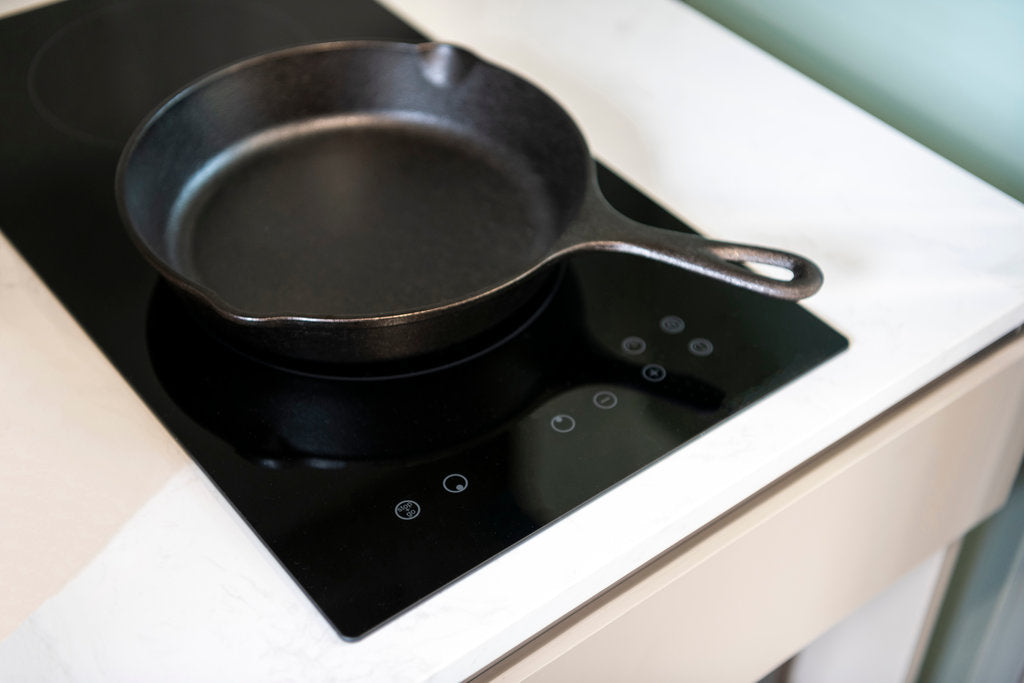Cast Iron and Magnetic Induction: What Barbecue Enthusiasts Need to Know
Written By James Morgan
For barbecue enthusiasts, cooking is an art form that combines flavors, techniques, and the right equipment. Among the tools that have gained popularity in recent years are cast iron and magnetic induction cooktops. These two elements, when combined, create a dynamic duo that can elevate your grilling experience. In this article, we will explore how cast iron and magnetic induction work together and why they are becoming a staple for barbecue lovers everywhere.
Cast iron has been a favorite among chefs and home cooks for its ability to retain heat and provide even cooking. Its durability and versatility make it ideal for a variety of cooking methods, including grilling. On the other hand, magnetic induction offers a modern and efficient way of heating, providing precise temperature control which is crucial for perfecting those barbecue recipes. When you bring these two together, you get the best of both worldstraditional cooking methods enhanced by modern technology.

Understanding Cast Iron
Before diving into how cast iron interacts with magnetic induction, it's essential to understand what makes cast iron so special. Cast iron cookware is made from a mixture of iron and carbon, and it is known for its excellent heat retention and distribution. When you preheat a cast iron skillet or grill, it maintains that heat for a long time, which is perfect for searing meats and achieving that coveted crust on steaks.
Moreover, cast iron is incredibly versatile. It can be used on various heat sources, including gas, electric, and, of course, induction cooktops. This versatility makes it a favorite among barbecue enthusiasts who enjoy experimenting with different cooking techniques. For more tips on how to use cast iron effectively, check out this guide on induction heating.
How Magnetic Induction Works with Cast Iron
Magnetic induction cooktops are becoming increasingly popular due to their energy efficiency and precise temperature control. Unlike traditional cooktops, induction cooktops use electromagnetic fields to heat pots and pans directly, rather than heating the cooktop surface itself. This means the cookware heats up faster and more evenly, which is crucial for achieving the perfect barbecue.
For cast iron to work with induction, the cookware must have adequate ferrous contentessentially, it must be magnetic. Fortunately, cast iron is naturally magnetic, making it an ideal candidate for induction cooking. When you place a cast iron skillet on an induction cooktop, the electromagnetic field excites the iron molecules, generating heat within the cookware itself. This results in quick and even heating, allowing you to focus on perfecting your barbecue recipes.
For more insights on the interaction between cast iron and induction, explore this detailed article.
The Benefits of Using Cast Iron on Induction Cooktops
There are several advantages to using cast iron on induction cooktops, especially for barbecue enthusiasts. Firstly, the even heat distribution of cast iron helps prevent hot spots, ensuring your food cooks uniformly. This is particularly important when grilling meats, as consistent heat is key to achieving that perfect sear.
Secondly, the precision of induction cooking allows for better control over temperature. This means you can easily adjust the heat to suit different types of barbecue dishes, from slow-cooked ribs to quick-seared steaks. Additionally, induction cooktops are known for their energy efficiency, as they only heat the cookware directly, reducing wasted heat and lowering energy costs.
For those interested in more tips and tricks for using cast iron on portable induction cooktops, this resource provides valuable information.
Maintaining Your Cast Iron Cookware
Maintaining your cast iron cookware is crucial to ensure its longevity and performance. One of the most important steps is seasoning your cast iron regularly. Seasoning involves applying a thin layer of oil to the cookware and heating it, creating a non-stick surface that also prevents rusting.
Additionally, cleaning your cast iron properly is essential. Avoid using harsh detergents, as they can strip away the seasoning. Instead, use warm water and a brush to remove food residues, and dry the cookware thoroughly to prevent rust. For more detailed maintenance tips, visit this guide.

FAQs
Does cast iron work on all induction cooktops?
Yes, as long as the cast iron is magnetic, it will work on any induction cooktop.
How do I know if my cast iron is suitable for induction?
If a magnet sticks to your cast iron cookware, it is suitable for use on an induction cooktop.
Can I use cast iron on portable induction cooktops?
Absolutely! Cast iron can be used on portable induction cooktops, offering the same benefits as traditional induction cooktops.



